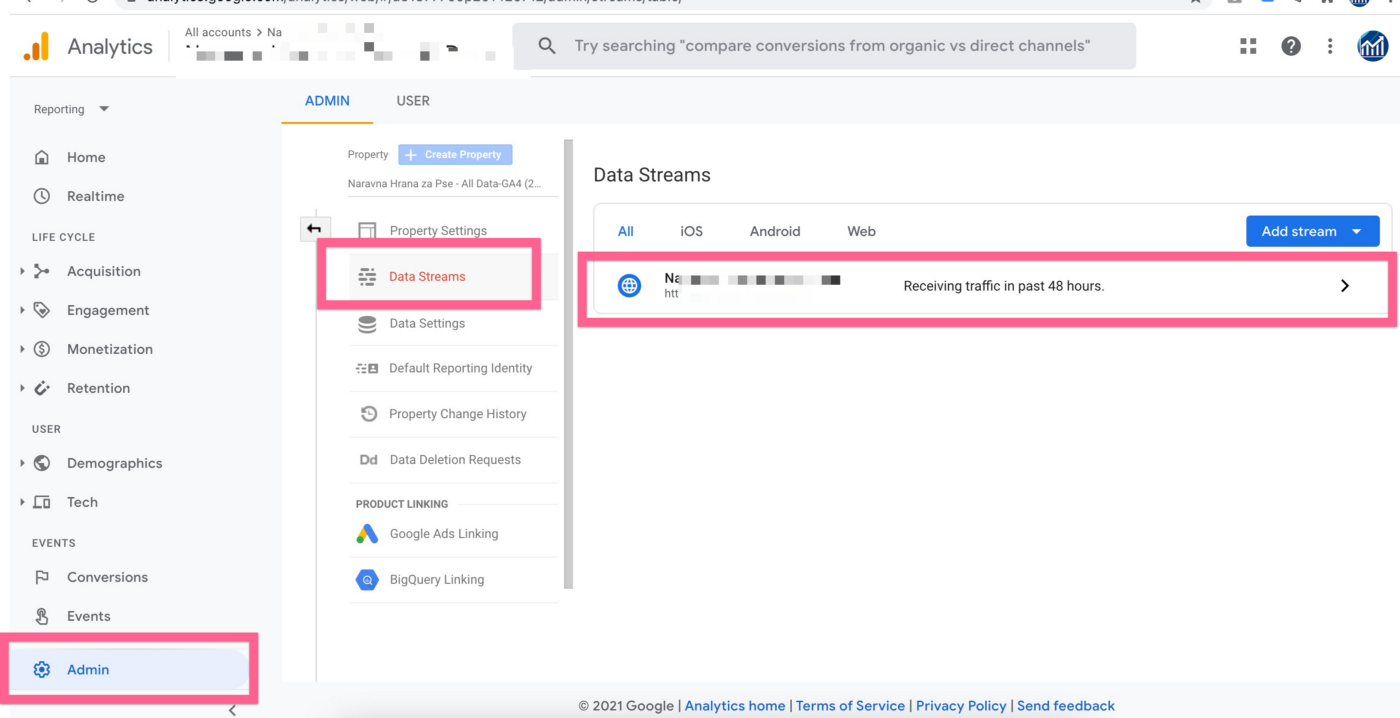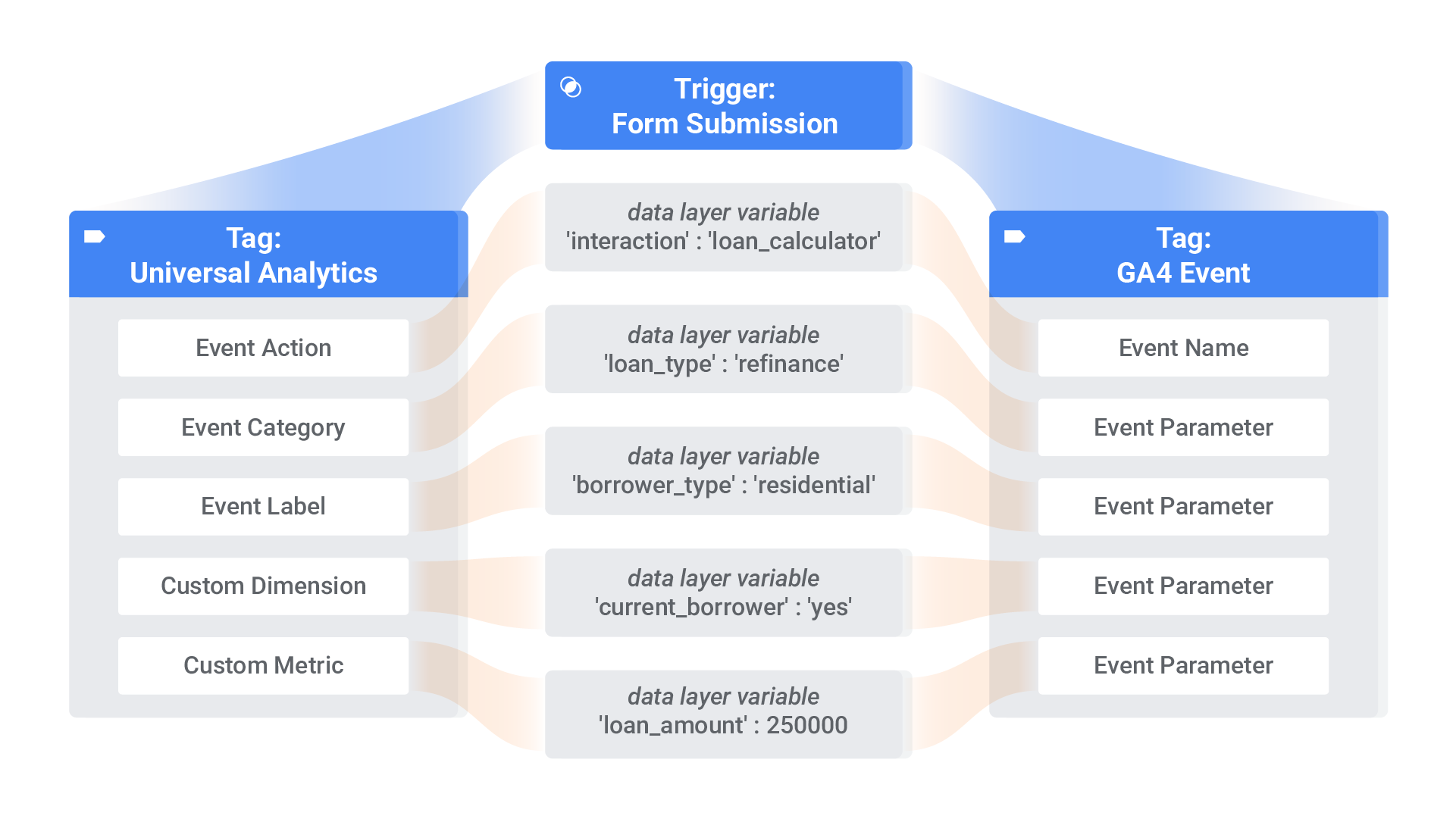Earlier this spring, Google announced that its flagship analytics platform, Google Analytics, will transition from Universal Analytics (UA) to Google Analytics 4 (GA4). Starting July 2023, HE properties will no longer process new data.
If you have an e-commerce website, you need to prepare for this change – and quickly. More specifically, if you want access to year-over-year data on GA4, you’ll need to move your accounts by July 1, 2023.
In this guide, I’ll help you get started by explaining:
How Google Analytics 4 is Different from Universal Analytics
Since its launch, GA4 has been undergoing modifications and updates, which will likely continue until the UA deadline next summer.
As there are a few learning curves with GA4, now is the time to migrate and audit your accounts. This will give your business plenty of time to get things up and running and ensure you are tracking correctly before HE closes.
Watch the video: Introduction to Google Analytics 4: What your business needs to know
As Inflow has been preparing our clients for this migration, we’ve focused on some of the biggest changes to expect:
1. Measures Users More Accurately As UA primarily measures by sessions and page views, GA4 focuses more on measuring users across devices and channels.
This means that your tracking will be more accurate; you will be able to see how users interact with your website not only in one sitting but also over time and through different devices. This update is especially useful for e-commerce brands, who often want to observe how users interact with their website(s) during different seasons and special events.
By seeing user data instead of sessions, you can home in on what’s working for you and what’s not – in turn better informing your business strategy.
2. Greater Access to InsightsIn GA4, you’ll have more data and features at your disposal to make informed decisions about your e-commerce website, including:
3. Predicts Customer Behavior with New MetricsGA4 also allows you to access predictive metrics based on machine learning.
These insights (listed below) can help you predict customer behavior and make changes to your e-commerce website accordingly:
4. Limited Reporting Capabilities Unlike AU, GA4 does not yet have “out of the box” reporting templates and options. Everything still needs to be customized and created through a multi-step process.
The platform also limits data retention to 14 months, so you’ll need to connect to BigQuery data warehouses and data streams for long-term report analysis.
The good news? Once you get used to the interface and set up your account, you’ll appreciate that GA4’s SEO analytics and reporting capabilities are much more powerful than AU’s.
Common Google Analytics Errors for ecommerce Accounts

It is highly recommended that your e-commerce brand migrate your accounts as soon as possible to preserve year-over-year data and confirm correct account setup. But don’t let your rush to transfer introduce errors into your process.
To ensure that your data is accurate and actionable, try to avoid these common mistakes that e-commerce businesses make when using Google Analytics 4:
1. Turning off UA TrackingJust because your brand is transitioning to Google Analytics 4 doesn’t mean it’s time to ditch Universal Analytics just yet. For the future, we recommend continuing to track your data through UA until its end next summer.
Given the current limitations in GA4, parallel tracking with both platforms will allow for the fullest possible data within the next year. It also serves as a backup in case your initial migration doesn’t go well.
Continue to collect your data through UA as you evaluate your GA4 setup, and then migrate the rest of your stack when you’re ready.
2. Not Connecting BigQueryBigQuery’s data warehousing capabilities used to be available only to GA360 customers, at a cost of hundreds of thousands of dollars per year. But with the data retention restrictions in GA4, that has now changed.
Today, you can start your own data warehouse to get around GA4’s data retention limitations practically for free.
Again, the earlier you set up this capability, the more data you’ll have in the future. Forget to set it up, and you’ll be severely limited when looking back at your historical data.
3. Not Using “Recommended” Event Names and Parameters As mentioned above, GA4 still has a long way to go in terms of reporting. However, by using recommended event names and parameters, you can “unlock” extended reports and features in the platform.
For example, by labeling your e-commerce transaction events as “purchases,” you’ll enable the financial and e-commerce reporting in GA4—essential to tracking the growth of your online business.
Create Your GA4 Plan Now

If you haven’t started migrating your e-commerce site to GA4 yet, you’re working on a pretty tight timeline – but it’s vital that you’re ready when UA takes a bow in July 2023.
To move your GA4 accounts on your own, check out the following helpful resources on reviewing and setting up your GA4 account:
We also recommend reaching out to your ecommerce digital marketing agency or web development team for help. They may be able to help you start or complete your migration process by this summer’s deadline.
Entrepreneur and digital marketer Mike Belasco has been the founder and CEO of the digital marketing agency eCommerce Inflow since 2007. He built his background as a web developer and SEO specialist an agency that has worked with major brands such as Amazon, Overstock.com , Dish Network and many more. Today he leads a team of more than 25 PPC, SEO and conversion optimization experts as a boutique, fully remote e-commerce marketing agency.
